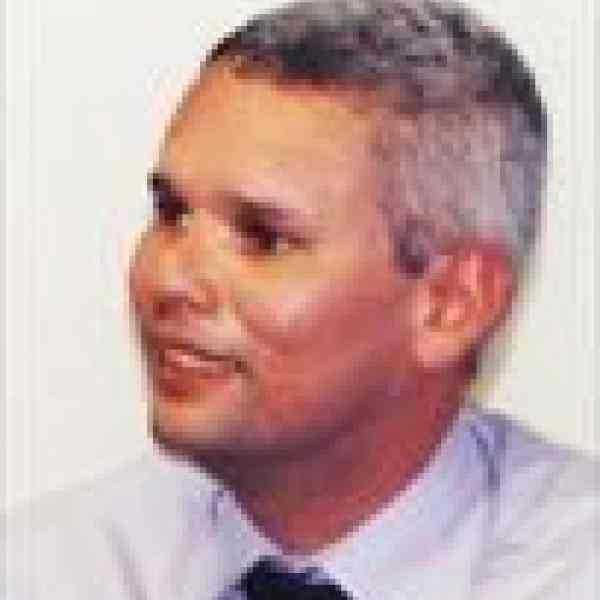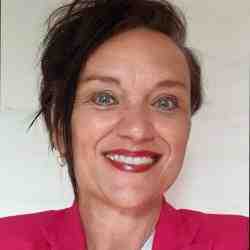Introduction
Harley Henriques do Nascimento is combatting the spread of the HIV/AIDS virus in the poverty-stricken Brazilian state of Bahia through a network of peer educators based in the region's disenfranchised communities.
The New Idea
Harley Henriques do Nascimento perceived early on that the AIDS epidemic was going to spread in poor, illiterate villages and neighborhoods, and he knew that prevention was urgent. He founded a community-based nonprofit group to prevent the spread of HIV/AIDS and minimize its effects on low-income and under-educated populations in Bahia. In areas where the epidemic is skyrocketing – and in a region that has never had an effective citizen sector – his group collaborates with existing organizations which do not specifically target AIDS but works with various segments of the community: the poor, the illiterate, women, bisexuals, youth, and rural inhabitants. Thus, he is addressing the twin challenges of AIDS and poverty. His organization provides direct care for people with HIV/AIDS, influences regional public policy, and works to eradicate human rights abuses and discrimination against people with AIDS through education campaigns.
Harley has initiated a challenging array of AIDS prevention programs, including providing information where it has been scarce. His strategy, which incorporates all community members, also encourages behavioral change. For instance, Harley knows that teaching only women how to prevent the spread of AIDS will be ineffective if their male partners, many of whom are bisexual and have multiple sexual partners, are not educated as well. Harley maintains a direct link with the population he serves by identifying and training health agents and a network of well-managed volunteers whose diversity reflects the population of the communities where they work. His team of psychologists, psychotherapists, and pro bono lawyers provide support to these community agents and volunteers. It is precisely the diversity of his staff and of the populations he targets that accounts for his success. Harley's AIDS awareness campaigns have received national awards and the Brazilian Ministry of Health is documenting his volunteer recruitment strategies in a manual to be distributed across the country.
The Problem
Fifteen years of public policies in Brazil have not curbed the spread of AIDS. Campaigns have reached larger cities like Rio de Janeiro and São Paulo, but have ignored Brazil's rural northeast where vulnerability grows daily. His own experiences have shown Harley that accurate information about AIDS is difficult to find and he realized that anyone with fewer resources and less education than his own would have even more trouble obtaining accurate answers to their own life-or-death questions.
Brazil ranks third in the world for the number of people infected with HIV. Of Brazil's 5,000 municipalities, 2,509 have registered AIDS cases, indicating that the epidemic is moving from the larger, coastal cities and into the country's rural interior. Close to 69 percent of new AIDS patients since 1994 have been illiterate people or high school drop-outs. In contrast, 10 years earlier, 84 percent of AIDS patients had completed higher levels of education. Seventy-one percent of cases have been detected in people between the ages of 20 and 39, who apparently contracted the disease during their adolescence.
Forty-three percent of the population in the northeastern state of Bahia is illiterate. Among Afro-Brazilians, who make up 80 percent of Bahia's population, more than one fifth are unemployed. When people are under-schooled and under-employed, they rarely have the ability or resources to find accurate information about health and AIDS. Moreover, the challenges of transportation and communication which plague rural areas worldwide represent stumbling blocks for spreading information to the people who need it most.
Bisexual men of color are one example of a difficult population to reach. Free distribution of condoms and information campaigns have not resolved this group's problems. Sexual relations between low-income Afro-Brazilian men and middle-class, gay white men, puts the former at high risk for contracting HIV. When Afro-Brazilian men pursue medical advice or services from the government health care system, they are often discriminated against because of their sexual orientation and their skin color. This double prejudice, combined with the common myth that black men are immune to diseases, means that this marginalized community tends to shy away from treatment and fail to recognize the dangers of AIDS. Despite its needs for education, employment, and medical care, the community has not mobilized itself to fight for access to government health services.
Bahia, an underdeveloped agricultural state, is the most plagued by hunger and illiteracy in all of Brazil. The public administration of Bahia is still mired in the epoch of colonialism and paternalism. A federally funded HIV health service program started just three years ago in Bahia, already off to a late start, was further impeded by the government's reputation for condescension and inefficiency. In this impoverished state with a stern, conservative government, social mobility and alternative lifestyles are heavily frowned upon. As a result, the epidemic in the northeast is growing invisibly and silently.
The Strategy
Harley has implemented a wide variety of programs through Grupo de Apoio à Prevenção à AIDS (GAPA-BA), the citizen sector organization he founded. His programs include: Program for Community Educators, Public School Teenage Program, Young People in Restricted-Liberty Situations, and AIDS Education Programs with a focus on gender and ethnic relations for homosexual and bisexual people. Through its training courses, GAPA-BA builds the programs's leadership; it also advocates advanced strategies to fight the epidemic and promotes behavioral changes among the least-privileged members of society. Harley's initiatives raise the organizing powers and awareness of human rights among stigmatized groups like the illiterate, the extremely poor, Afro-Brazilian women, young people, and homosexuals. GAPA-BA reaches this vast target audience via partnerships with existing social organizations that represent and work with the populations themselves. It responds to the individual needs of the fifteen communities in which these organizations currently work instead of imposing initiatives.
GAPA-BA's education program begins with training members of each target group to teach practical AIDS prevention information to their communities. Before entering a community, Harley and his staff identify leaders who will serve as facilitators. For example, low-income adolescents teach their friends in social settings, peers educators train others in schools, and community representatives work in a local meeting place. In public schools, Harley collaborates with principals and teachers to seek teens who can educate their classmates about HIV/AIDS. In municipal health centers, GAPA-BA helps coordinate sexual health counseling for low-income women and adolescents. The same strategy works in associations for favela (slum) residents, Afro-Brazilian political and cultural groups, and various religious groups that run programs for poor women and youth.
Publicity campaigns using billboards, posters, television, radio, and newspapers further educate the public. GAPA-BA created the first campaign for AIDS prevention to use actual people with AIDS telling their own stories. This realistic campaign won the Columnists's Prize, awarded by public relations and advertising firms in Brazil.
GAPA-BA's second focus is direct service to people with AIDS and their families. The organization offers psychotherapy services and makes hospital visits. A hotline provides accurate advice and a sympathetic ear for the people with questions about HIV/AIDS. Harley frequently speaks to businesses and unions to clear up misunderstandings about employees with AIDS and how to deal with insurance problems. Harley is working in conjunction with local citizen sector organizations to run community health care centers that treat HIV/AIDS patients with dignified and solid medical care.
The third major thrust of GAPA-BA's strategy concerns public policy. The organization has worked on legislation to protect the rights of people with HIV/AIDS. Its aim is to stimulate not only policy action but also social movements and citizen sector organizations that can confront the AIDS crisis. To accomplish this, GAPA-BA is forming a network of human rights and legal assistance agencies. This network puts pressure on government bodies to solve problems such as the severe lack of medicine to treat patients. An ongoing goal is to fortify alliances between the legislative and executive branches of the Brazilian government to promote appropriate policies. At the same time, GAPA-BA keeps a close eye on state-level financial operations in the public health arena. Currently, it is widening its spectrum of institutional activities to a state and regional level, applying its successful strategies in Bahia to other northeastern capitals and distant interior cities. In these three areas – education, direct service, and public policy – GAPA-BA's management strengths set it apart from other citizen organizations. A marketing internship at a graphic design agency provided Harley with training in publicity and business techniques, both keys to GAPA-BA's success. GAPA-BA is pioneering high quality, systematized volunteer recruitment and management in Brazil. Through a partnership with the Gay Men's Health Crisis Center in New York City, Harley has designed a complete methodology for recruiting and retaining volunteers. To disseminate the best practices of his volunteer corps, Harley wrote The Manual for Volunteer Management in AIDS Non-Profits, which has received an overwhelmingly positive response. Nonprofits dealing with issues other than AIDS have requested copies, and quickly instituted Harley's policies. In his manual, Harley offers practical solutions for the volunteer burn-out, drop-out, and dissatisfaction so common in citizen sector organizations. Brazil's Ministry of Health published his book, recognizing the importance of the manual's advice regarding internal and external institutional monitoring, auditing, and evaluation. With 12 paid staff and 40 heavily involved volunteers, GAPA-BA offers a working example of how to run a successful, efficient organization by optimizing the abilities of diverse workers.
The Person
Harley was born in 1968 in a very conservative area of Brazil. His father died when Harley was ten years old. Beginning in his early adolescence, Harley joined church youth and environmental movements, looking for an alternative to the restrictive environment in which he was raised. He was elected to student government at his university, which he attended on a scholarship. He says that his mother, who sold the family house and worked as a seamstress to support Harley and his two older siblings, has been his model. "She taught herself how to be courageous as a single mother in the face of economic and social challenges. And she taught me how to take care of myself," Harley says proudly. His mother's entrepreneurial skills led him to support himself financially from a very young age.
When he was nineteen years old, the AIDS epidemic reached Brazil. He was distraught by pervasive misinformation about AIDS and sex. He went to a public hospital to get tested for HIV and saw people dying from AIDS in a decrepit setting. They were surrounded by their families but received little assistance. This strongly affected his understanding of the AIDS crisis. He had to wait three months for his HIV-negative test results to come back. By the time the good news arrived, Harley says, he had already resolved to work on AIDS issues. As part of the university student movement, Harley tried to discuss alternative sexuality education, but found his fellow political activists closed to these issues. He considered the terror he felt when he tried to obtain information about AIDS and realized that people with fewer resources and less education than he would be stymied by a similar search for help. At that point, he decided to remove himself from the university's political movement and create GAPA-BA.




